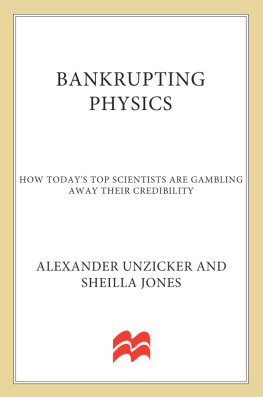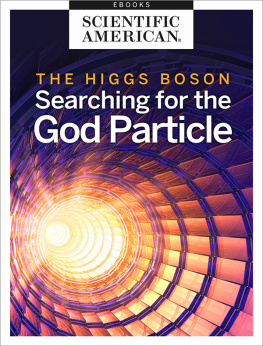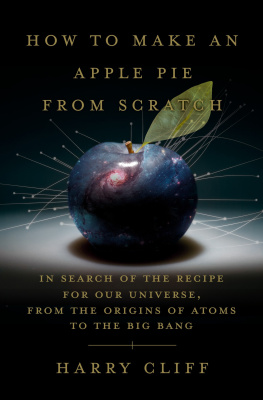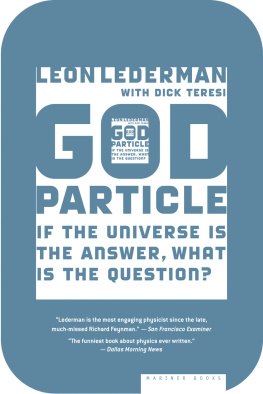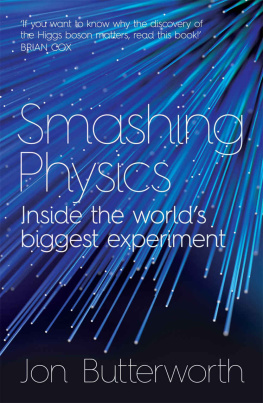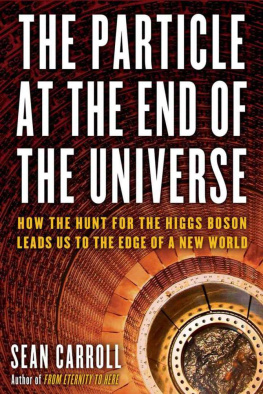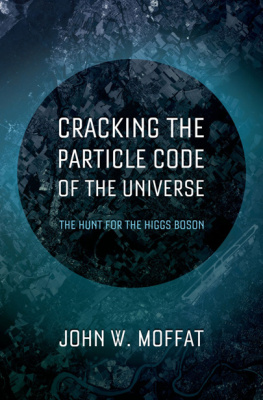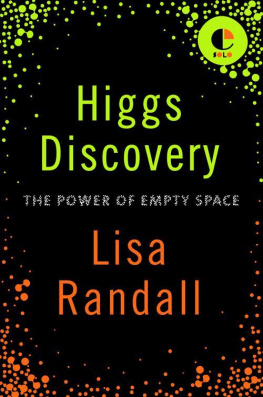BANKRUPTING PHYSICS
BANKRUPTING PHYSICS
HOW TODAYS TOP SCIENTISTS ARE GAMBLING AWAY THEIR CREDIBILITY
ALEXANDER UNZICKER
AND
SHEILLA JONES

The author and publisher have provided this e-book to you for your personal use only. You may not make this e-book publicly available in any way. Copyright infringement is against the law. If you believe the copy of this e-book you are reading infringes on the authors copyright, please notify the publisher at: us.macmillanusa.com/piracy.
CONTENTS
PROLOGUE
RELAXING, EXCITING, AND OVERSTRUNG PHYSICS
There is nothing more relaxing than physics. However distressing everyday problems may appear to us, our human endeavors appear trivial and inconsequential under the universes vast and starry sky. Or, alternatively, imagine the smallness of the elementary building blocks that comprise Nature. These thoughts are a refuge for the harried mind.
But it is equally true that there is hardly anything more exciting than physics. Physics shows us the microscopic world with incredible tools, and the entire universe has opened up before our eyes with the kind of detail unknown to previous generations. Never before have we been better prepared to discover the fundamental laws of Nature.
Yet, and regrettably, there is also much that is ludicrous being sold under the name of physics, and this book will deal extensively with this issue. This is not a polemic against science. Far from it. Rather, it is a recognition that while much of our civilization is based on physics, it is human curiosity and aspiration that drives science. And inevitably, there is also human wishful thinking and human failure.
Applied physics has been a terrific success to date, and the fundamental findings of theoretical physics in the early twentieth century were among the greatest accomplishments of humankind. But that was then. Today, the major part of theoretical physics has instead gotten lost in bizarre constructs that are completely disconnected from reality, in a mockery of the methods that grounded the success of physics for 400 years.
Fortunately, an increasing number of people in the scientific community and in the public are becoming aware that bold ideas such as string theory, multiverses, chaotic inflation, and a holographic principle have little to do with real physics. Unfortunately, before these fantasies took over, physics was already ailing.
A particularly worrying symptom of the current state of affairs in physics is the so-called discovery of the Higgs boson at CERN. The media-hyped announcement in 2012 has been followed up by a series of announcements, each installment making the case that the big sensation is increasingly more likely. But what was actually discovered were a number of unexplained signals obtained by extensive filtering methods, raising many questions for everyone who takes a sober perspective. Nobody can claim to oversee the analysis of the massive pile of data produced by CERNs collider experiments.
Nevertheless, these signals are pushed to serve as evidence for the long-theorized Higgs boson supporting the standard model of particle physics, although this standard model is not even a well-defined theory. Such an interpretation speaks more of desperation to validate the past six decades of research and to shore up a model that is wobbling precariously under the weight of all the bits and pieces glued onto it to make it work.
I can hear the protests of physicists who conveyed the message in good faith. But they had little choice. The CERN particle search is the most expensive experiment ever conducted, and the thousands of scientists doing high-energy research there had to celebrate any outcome as a breakthrough, if only to justify the billions of dollars of public money being spent.
In economics, we have seen expert analysts parroting one anothers euphoric statements when the underlying construction, based entirely on confidence, was about to crash. A worrying amount of knowledge in physics is based on such confidence in expert opinions.
Economics can produce bubbles, and so can science. It appears to be a universal mechanism of human aspiration that, while following the seemingly obvious, methods can gradually slip into absurdity, leaving behind unresolved problems that escape the attention of busy researchers. We need to take a step back from the scientific convictions of our generation and scrutinize the complicated models that might well be rather mundane constructions than true laws of Nature.
This book is not going to be the ally of religion, intelligent design garbage, or other esoteric hokum. It is true science that we need, and it is the erosion of its methods that has led to the crisis of physics we observe today. Keep this diagnosis in mind while you are reading the book.
Whatever my criticisms of science, I still have more esteem for scientists self-indulgent fantasies about imaginary multiverses than for those who, in pursuit of power, wealth, and military vengeance at the expense of the environment and the well-being of humankind, are about to destroy our real world and thus put into danger the whole enterprise of Homo sapiens on this planet. More than ever, the world needs the competence of physicists. And this is another reason why physics must be careful not to gamble away its intellectual authority while playing with fantasies more suited to the science fiction industry. There are lots of things to do to understand our world theoretically, and to conserve our world practically.
I hope that the fascination for the universe and its many intriguing puzzles continuously accompanies you on the pages that follow. Doing scientific research is a privilege of the era we are living in. It is a big responsibility. That is why I wrote this book.
While completing my German manuscript, I discovered Sheilla Joness The Quantum Ten, an excellent history of quantum mechanics. What really impressed me was how persuasively she explained the way modern theoretical physics has gone astray since the late 1920s. I am happy that we could write this book with such a common view, and I am grateful that her investigative mind as a journalist and her profound knowledge about history contributed to this restructured English edition.
BANKRUPTING PHYSICS
Copyright Alexander Unzicker and Sheilla Jones, 2013.
Translation from the German language edition: Vom Urknall zum Durchknall by A. Unzicker. Copyright Springer-Verlag Berlin Heidelberg 2010. Springer-Verlag is part of Springer Science+Business Media.
All rights reserved.
For information, address St. Martins Press, 175 Fifth Avenue, New York, N.Y. 10010.
First published in 2013 by PALGRAVE MACMILLAN in the United States a division of St. Martins Press LLC, 175 Fifth Avenue, New York, NY 10010.
ISBN 9781137278234
Our eBooks may be purchased in bulk for promotional, educational, or business use. Please contact the Macmillan Corporate and Premium Sales Department at 1-800-221-7945, ext. 5442, or by e-mail at .
Library of Congress Cataloging-in-Publication Data
Unzicker, Alexander.
Bankrupting physics : how todays top scientists are gambling away their credibility / Alexander Unzicker and Sheilla Jones.
pages cm
ISBN 9781137278234 (hardback)
1. PhysicsPhilosophy. 2. PhysicsExperiments. 3. PhysicsMathematical models. I. Jones, Sheilla. II. Title.
QC6.U59 2013
530dc23 2013004524
A catalogue record of the book is available from the British Library.
Design by Newgen Imaging Systems, Ltd., Chennai, India
First edition: July 2013
Next page
